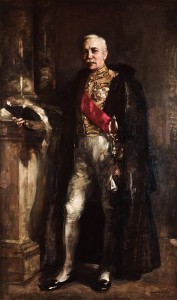In issue number 11 ( January 1951) of the book miscellany Colophon someone called W. Mason- Owen describes some of the literary material that remains locked away in two departments of the British Library ( or British Museum Library as it was then known). Incidentally, didn’t unfashionable novelist Angus Wilson work in the Manuscript department of the BM around this time? I bet he had a peek at these banned items.
In 1951 the first and most important of these departments was the Copyright Department, in which ‘ neatly packed away in brown paper parcels ‘ could be found ‘ politician’s diaries , books, letters and documents of scientists, inventors, poets and literary men, Court gossipers and King’s Messengers’. According to Mason-Owen, many of these writings wouldn’t be available to read for another fifty years---some perhaps would never be read. Owen then describes a few examples of the material locked away:-
- Sir Henry Campbell-Bannerman’s private papers. Apparently, according to Mason-Owen, Campbell-Bannerman was Prime Minister in the early part of ‘ the nineteenth century’ , which should of course read ‘ the twentieth century ‘. Never mind. The reason they’re hidden away was because this particular politician was ‘famed for his caustic outbursts ‘against his more intransigent opponents. It’s hard to imagine that many of these MPs would have been alive forty or fifty years on, but there you are. I suppose war hero Winston Churchill might have been one of them.
- Charles Dickens’s letters and original manuscripts were only released ‘a few years ago ‘. The man died in 1870. Why therefore were scholars denied the chance to examine his papers? One reason might have been the embarrassing fact that our greatest novelist was also an adulterer and that the publication of some of the letters would have tarnished his reputation. Only after the death in 1933 of his last surviving child, the eminent London barrister, Sir Henry Dickens, who surely knew the contents of the letters, were the papers made available for study.
- The Marquis of Winchester’s unpublished memoirs. According to Mason-Owen, ‘about sixteen years ago ‘proofs of these memoirs were handed over to the department. Apparently, amongst these largely innocuous records of his life was a chapter to which various people took ‘exception’. One assumes that the offending chapter was sent to those mentioned by the author, and based on their negative responses a decision was made to withdraw the book from publication. It now transpires that the Marquis of Winchester in question was Henry Paulet, the sixteenth Marquis in that line, who had been born in 1862. He was indeed a remarkable character—a soldier, noted sportsman, and failed businessman. It is likely that the offending chapter was the one in which the Marquis made frank comments about some of his colleagues and others involved in the doubtful business practices that ended in his bankruptcy. Later, in the year following Mason-Owen’s revelations about these controversial memoirs, he decided at the ripe old age of 90, to marry a certain Miss Bapsy Pavry, an Indian woman forty years his junior, who was the daughter of some obscure Parsi priest. By this single act the new Marchioness became the first non-white woman in history to marry into the British aristocracy. Once ensconced in the family seat near Andover, the new lady of the house, doubtless conscious of her unique status, began pushing her weight around, both in the local community and among her fellow aristos, none of whom were impressed by her conduct. It is possible that this arrogance was one of the reasons why her husband decided to leave her for another woman—the mother of James Bond creator Ian Fleming no less-- just months into their marriage. Having subsequently emigrated to the South of France, the Marquis died in 1962, aged 99, while the former Miss Pavry, after deciding that she was more likely to receive the deference she craved in her home country, returned to India and in 1995 died there, having achieved virtually nothing in her 93 years of existence apart from social climbing. [ R.M.Healey]

